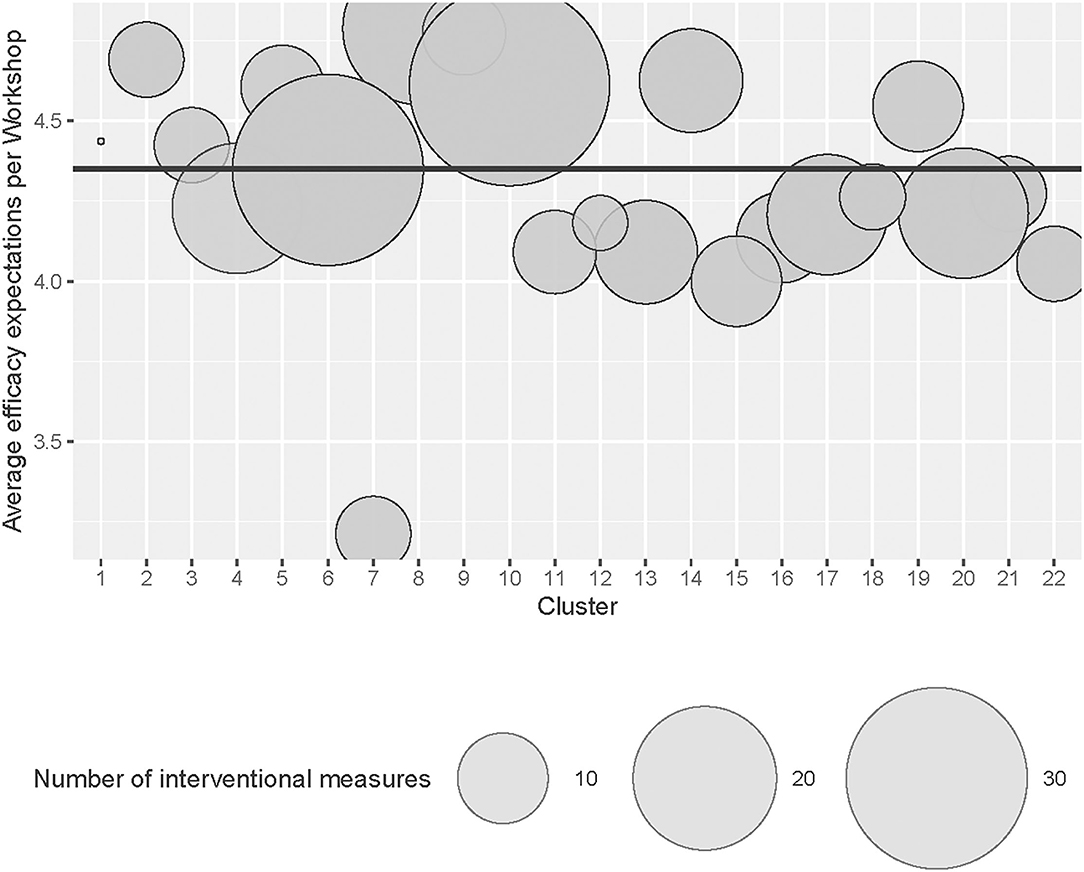Assessing the Role of Collective Efficacy Beliefs During Participative Occupational Health Interventions
A Corrigendum on
Assessing the Role of Collective Efficacy Beliefs During Participative Occupational Health Interventions
by Kuchenbaur, M., and Peter, R. (2021). Front. Public Health 9:797838. doi: 10.3389/fpubh.2021.797838
In the original article, there was a mistake in Figure 2 as published, due to the upload of a broken .eps file in the pursuit of a less pixelated rendering of figure 2. The corrected Figure 2 appears below.
The authors apologize for this error and state that this does not change the scientific conclusions of the article in any way. The original article has been updated.
Publisher's Note
All claims expressed in this article are solely those of the authors and do not necessarily represent those of their affiliated organizations, or those of the publisher, the editors and the reviewers. Any product that may be evaluated in this article, or claim that may be made by its manufacturer, is not guaranteed or endorsed by the publisher.
Keywords: participative intervention, collective efficacy beliefs, process evaluation, occupational health, questionnaire
Citation: Kuchenbaur M and Peter R (2021) Corrigendum: Assessing the Role of Collective Efficacy Beliefs During Participative Occupational Health Interventions. Front. Public Health 9:822431. doi: 10.3389/fpubh.2021.822431
Received: 25 November 2021; Accepted: 26 November 2021;
Published: 16 December 2021.
Approved by:
Frontiers Editorial Office, Frontiers Media SA, SwitzerlandCopyright © 2021 Kuchenbaur and Peter. This is an open-access article distributed under the terms of the Creative Commons Attribution License (CC BY). The use, distribution or reproduction in other forums is permitted, provided the original author(s) and the copyright owner(s) are credited and that the original publication in this journal is cited, in accordance with accepted academic practice. No use, distribution or reproduction is permitted which does not comply with these terms.
*Correspondence: Marco Kuchenbaur, bWFyY28ua3VjaGVuYmF1ckB1bmktdWxtLmRl
 Marco Kuchenbaur
Marco Kuchenbaur Richard Peter
Richard Peter